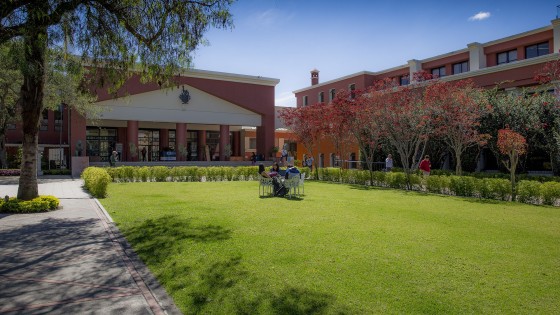Experimental Economics Undergraduate Workshop 2022
Promoting Experimental Economics in South America: Workshop and Conference for the International Foundation for Research in Experimental Economics.
Experimental economics in recent years has gained remarkable strength especially within Central and South America. This trend is due to the interest and investment that leading universities in the region have set to promote these methods and bring it into the mainstream of economics. In order to encourage continued interest in experimental methods within the region, expand the number of students who are exposed to experimental economics and increase the number of faculty members who make use of these tools, the Institute of Economics of USFQ invites you to the Experimental Economics Undergraduate Workshop. This event will be hosted at the USFQ Quito campus and it will take place from Friday, July 8 to Sunday, July 10, 2022.
Workshop format
The workshop will have the participation of 20 (max 24.) students from various universities nationwide. This event consists of 11 modules which discuss different economic and financial issues, and that includes the participation of students in experiments. The experiments include an average payment of $90, which should help cover the cost of tickets and/or lodging near USFQ. The final payment will depend on the points earned across the different games presented in the workshop. The workshop will be given in English, and is free to attend. For attending and participating in all modules, participants will receive a certificate signed by IFREE and USFQ.
Speakers and topics
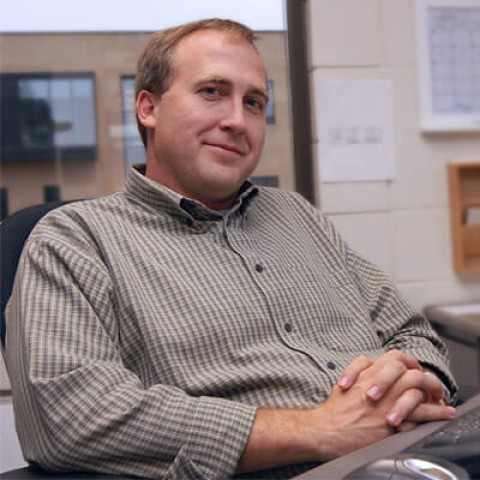
Prof. Cary Deck: Contests, Auctions, Common Value Auctions
El Prof. Cary Deck es afiliado al Instituto de Ciencias Económicas. Es profesor de economía en la Facultad de Negocios Sam M. Walton de la Universidad de Arkansas, donde también es Director del Laboratorio de Investigación de Behavioral Business. Su investigación utiliza experimentos de laboratorio controlados para investigar una amplia gama de temas, desde instituciones de mercado hasta conductas de elección individual. El trabajo del Dr. Deck ha sido apoyado por subvenciones de la National Science Foundation, los Institutos Nacionales de Salud y la Comisión Federal de Comercio y ha sido publicado en American Economic Review, Econometrica, Information Systems Research, Review of Economics and Statistics y Review of Economic Studies, entre otros. Recibió su Ph.D. de la Universidad de Arizona en 2001 y ha sido becario Fulbright en la Universidad de Economía de Praga y miembro de Erskine en la Universidad de Canterbury. Actualmente se desempeña como co-editor de Southern Economic Journal y como editor asociado de Journal of Behavioral and Experimental Economics.
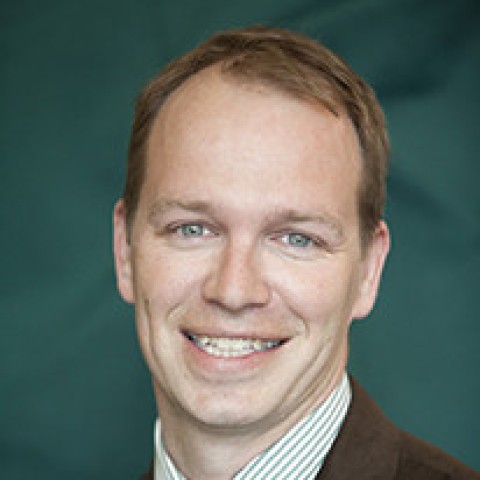
Prof. Kyle Hampton: Exchange and Specialization, Double Auctions, Game
El Prof. Kyle Hampton es profesor y director del Centro de Estudios Económicos de la Universidad de Alaska Anchorage (UAA). Recibió su doctorado en economía de la Universidad George Mason y realizó sus estudios universitarios en filosofía y economía en la Universidad de Carolina del Sur. La investigación de Hampton se centró en áreas como la teoría de juegos, la economía experimental, la microeconomía y los mercados internacionales. Actualmente es un miembro activo en el Consejo de Educación Económica de Alaska, así como un participante en varias organizaciones dentro de la UAA.
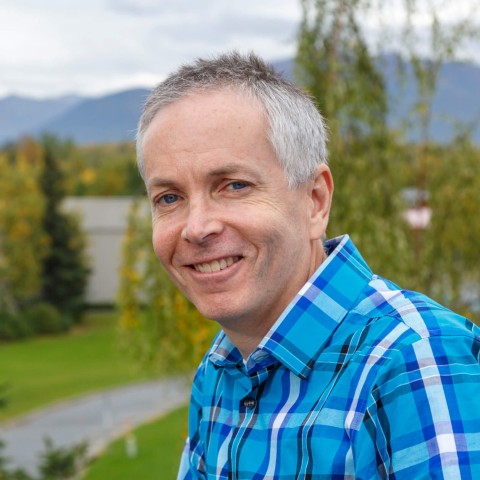
Prof. James Murphy: Public Goods, Externalities, Common Pool Resources
El Prof. James Murphy es profesor de economía en la Universidad de Alaska Anchorage (UAA). Antes de llegar a la UAA, estaba en la facultad de la Universidad de Massachusetts Amherst. Recibió su Ph.D. de la Universidad de California Davis y estudió economía experimental como becario predoctoral en la Universidad de Arizona. Como parte de una asociación universitaria para desarrollar un nuevo programa de economía experimental en China, también es profesor visitante en la Universidad de Nankai y presidente de su nuevo Laboratorio de Economía Experimental Nankai Vernon L. Smith. La investigación del Dr. Murphy se centra en el uso de métodos experimentales para abordar cuestiones de política ambiental y gestión de recursos naturales. Es un miembro activo de la junta de la Fundación Internacional para la Investigación en Economía Experimental, y está en la junta editorial de la Revista de Economía Ambiental y Gestión, y Comportamiento Estratégico y Medio Ambiente. Fue miembro del Comité Científico y Estadístico del Consejo de Gestión Pesquera del Pacífico Norte desde 2011-2013.
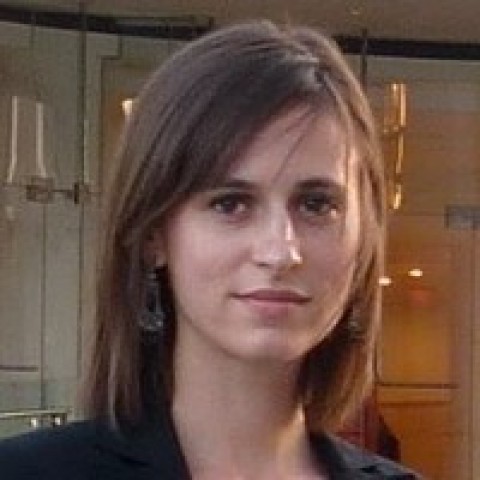
Dr. Olga Rud: Asset Markets, Financial Intermediaries
La Dra. Olga Rud es profesora en el Royal Melbourne Institute of Technology (RMIT). Antes de llegar a RMIT, la Dra. Rud trabajó como profesora e investigadora en universidades como la Universidad de Melbourne, Hamilton College, Bates College y City University of Hong Kong. Recibió su doctorado de la Universidad de California, Santa Cruz; y su maestría en Economía de la Universidad de Miami. Sus intereses abordan temas de economía experimental en mercados y decisiones financieras.
Program
Day 1
July, 8th
| Time | Activity |
|---|---|
| 9:00 – 9:15 | Check-In and Welcome |
| 9:15-10:45 | Kyle Hampton – Specialization and Trade (Hand Run) Kimbrough, Smith, Wilson 2008 - Historical Property Rights, Sociality, and the Emergence of Impersonal Exchange in Long-Distance Trade |
| 10:45-11:00 | Coffee Break |
| 11:00-12:30 | Kyle Hampton – Double Auctions (Kiviq) Smith 1962 – An Experimental Study of Competitive Market Behavior Smith 1982 – Microeconomic Systems as an Experimental Science |
| 12:30-13:45 | Lunch Break |
| 13:45-15:15 | Cary Deck – Auctions (Mob Lab) Cox, Roberson, Smith 1982 – Theory and Behavior of Single Object Auctions |
| 15:15-15:30 | Coffee Break |
| 15:30-17:00 | Cary Deck – Contests (Hand Run) Sheremeta 2011 – Contest Design: An Experimental Investigation |
| 16:00-17:30 | Dinner |
Day 2
July 9th
| Time | Activity |
|---|---|
| 9:15-10:45 | Jim Murphy – Public Goods (Mob Lab) Holt 2007 – Voluntary Contributions." Markets, Games and Strategic Behavior. New York: Pearson Addison Wesley. Ch 14. |
| 10:45-11:00 | Coffee Break |
| 11:00-12:30 | Jim Murphy – Common Pool Resources (Mob Lab) Ostrom 2006 – The value-added of laboratory experiments for the study of institutions and common-pool resources |
| 12:30-13:45 | Lunch Break |
| 13:45-15:15 | Jean Paul Rabanal / Olga Rudd –Topic 1 Games (Moblab) Hoffman, McCabe, Shachat, and Smith 1994 – Preferences, Property Rights, and Anonymity in Bargaining Games |
| 15:15-15:30 | Coffee Break |
| 15:30-17:00 | Jean Paul Rabanal / Olga Rudd –Topic 2 |
| 17:00-17:15 | Wrap Up |
Register
¿How can I apply?
Applications are open to students from all universities in the region. As a requirement, students must apply on the program's website and go through a highly competitive selection process which will choose 20 participants. Therefore, those seeking to apply must complete their application form by Friday, June 19; and the accepted applicants will be announced before Sunday, July 3, 2022. There are no costs to participate in the workshop and payment for participation in the experiments will be given out in cash. Payments will depend on the points you get in the experiments given at different modules.
Application form:
Personal information:
- Nombre / name:
- Apellido / last name:
- Sexo / gender:
- País de ciudadanía / citizenship:
- Ciudad de domicilio / city of domicile:
- Email:
- Teléfono / phone number:
- Celular / mobile phone:
Education
- Universidad / university:
- Carrera / career:
- Fecha de graduación / graduation date:
- Carrera / career:
- Lugar de trabajo / working place:
- Cargo / position: ( max 100 words)
About you (80 words minimun)
- ¿Where do you see yourself in 5 years?
- ¿ Which are three courses at university which you found the most useful and why?
- ¿What are your hobbies?
- ¿What do you think your contribution to the workshop will be like?
- ¿How is this event going to help your personal and professional life?
- ¿Why do you think Experimental Economics are so important?
- ¿Which subjects do you think Experimental Economics deals with best?
- ¿What is the most important quality of Experimental Economics in regards to the Economics field?
- Your information has been sent. You will receive an email of confirmation when a decision has been made regarding your application.
Organizing Committee
Organizers
- Pedro Romero, USFQ
- Mónica Rojas, USFQ
- Cary Deck, University of Alabama
- Kyle Hampton, Chapman University
- Jim Murphy, Universidad of Alaska Anchorage
- Olga Rud, RMIT University
Ecuador and Quito
Quito “Luz de América” is the capital of Ecuador and the starting point for tourists who visit the country whether it be on business, adventure, or just for fun. The city is privileged by its spectacular natural environment, historic center and unique culinary offer in the region. The capital city of Ecuador, with its mixture of colonial and modern architecture, offers a fascinating atmosphere to those who visit it. In addition to being the political center of the nation, it is also its cultural capital, as it has an impressive selection of museums, festivals and nightlife.
Accomodation
JW Marriot
Address:: Av. Orellana 1172 y Amazonas
Tel: (593)2 2972000 / 099 300 2239
Web: http://www.espanol.marriott.com/hotels/travel/uiodt-jw-marriott-hotel-quito/
Hotel Quito
Address: Av. González Suárez N27 142
Tel: (593) (02) 396-4901 / 099 944 5435
Web: http://www.hotelquito.com.ec
Hotel Hilton Colón
Address: Av. Amazonas N 1914 y Patria
Tel: (593) (02) 382-8300 / 098 489 8037
Web: http://www3.hilton.com
Hotel Stubel
Address: Pasaje Stubel N.1 y Juan Larrea
Tel: (593) (02) 601-3499 / 09 8 944 9057
Web: http://www.stubel-suites.com
Hotel Dann Carlton
Address: Av. República de El Salvador N34-377 e Irlanda
Tel: (593) (02) 397-2600
Web: http://www.hotelesdann.com/dann-carlton-quito/
Hotel Sheraton
Address: Pasaje Stubel y Rafael León Larrea
Tel:: (593) (02)6013499 / 09 8 944 9057
Web: http://sheratonquito.com-quito.com/

